I have a project, when should I contact Film France or a film commission?
The earlier you contact Film France and local film commissions with specific information (production company, current financing, crew composition, script, etc.), the more efficient they will be in facilitating the work of the team.
Film France and local film commissions are committed to respecting the confidentiality of the information you provide.
I’m looking for a location, how can Film France and the film commissions help me?
One of the main missions of the film commissions is to help you find a location. This support cannot replace the professional work of a location scout. It is essentially about “pre-scouting”.
As a first step, we recommend that you consult our national database of film locations. For particularly targeted research, do not hesitate to contact the film commission network.
Finally, if your research does not concern a specific territory and concerns a type of location that is difficult to find, you can send your request directly to filmfrance@cnc.fr. We will then be able to coordinate the research and the responses of the film commissions.
What is the difference between pre-scouting and scouting?
The location database is a pre-location database. It is not a substitute for a location scouting carried out by a filming professional (in particular by a location scout), with a view to a specific project.
There are several ways to contact them:
- Film commissions of the Film France network who know the professionals in their area;
- Associations or groups of professionals:
- The website of the Association des Repéreurs: www.asso-repereurs.fr;
- The www.repereurs.net website, which groups together others.
Depending on the project, location scouting can also be done by an assistant director or a director. Here again, if you need to contact one, there are several possibilities:
- The AFAR (Association Française des Assistants-Réalisateurs) website: www.afar-fiction.com ;
- The AFR (Association Française des Régisseurs) website: www.afrcinetv.org.
How do i get a film permit?
There are as many procedures as there are types of sets. One of the roles of the film commission is to advise you on the steps you need to take to obtain a film permit. Regardless of the procedure, you will still need to submit a synopsis of the scenes to be shot on the set, an insurance policy, the crew’s technical list, the project budget, the number of days of shooting and preparation on the location.
The provision of the set will be the subject of an agreement, whether the provision is free or paid. Authorizations for outdoor public places are very often issued by the municipality concerned.
Do i have to pay a fee to shoot in a set?
There are two types of costs associated with filming in a set:
- the cost of making the location available (which can take different forms: rent, availability fee, fee for services rendered…);
- The architects’ fee: see next question.
Why is it sometimes necessary to pay an architect’s fee to shoot in a building?
In addition to the filming authorization, for certain locations the authorization of the building’s architect may be necessary. This may give rise to payment of copyright (“image rights”). If the filming is of a particularly original building whose architect is alive or has been dead for less than 70 years, the authorization of the architect or his representative/assignee is necessary for the filming to be used.
In accordance with the intellectual property law and as an author, the architect benefits from the right to exploit his work during his entire life and transmits this right to his successors for the year of his death and for the following 70 years. Beyond that, the work falls into the public domain.
The copyright includes :
- A moral right (right to disclose the work, right to set the conditions of its representation, of its reproduction) ;
- A pecuniary right (right to profit from the work).
To obtain the authorization to exploit the image of the work, it is advisable to contact the architect himself or the owner of the property (who can be mandated by the architect for the management of this right) or a society of management of the author’s rights such as the ADAGP for example (www.adagp.fr – This society exerts and administers the rights recognized to the authors by the Code of Intellectual Property of its associated members).
The amount of the rights to be paid is fixed for the uses of the buildings protected by the copyright. The following are taken into account in determining the amount: the duration of the use of the image of the building, the type of film or audiovisual work in which it is included, the type of exploitation, the use of the image of the building in the film or audiovisual work.
These royalties are not due if the building is not the main object of the shooting. This is assessed on a case-by-case basis (is the building the subject of a still shot? Is it included in a tracking shot? How long does it appear in the image? Is it in the foreground?)
If you are unsure about whether or not to pay rights to the architect, you can contact Caroline Julliard-Mourgues, Deputy Head of Film France : caroline.julliard-mourgues@cnc.fr / 01 44 33 35 64 or the film commission of the territory in which the set is located.
I want to film in Paris, What shall I do ?
You can consult the website of Paris Film, Mission Cinéma of the city of Paris.
You will find not only information on Parisian settings but also all the practical information you need to prepare your filming in Paris, and for all requests for filming permits. Paris Film is a member of the Film France network.
How to get involved in an eco-responsible production?
Several actions can be taken to gradually commit to an eco-responsible approach depending on your position and experience:
- Training
- Surround yourself with people
- Evaluate your carbon footprint
Training: numerous training and awareness courses are organized throughout France to familiarize yourself with eco-responsible approaches or to develop your expertise and specialize in this field. There is a certification : https://www.cpnef-av.fr/les-formations/ccp-deployer-une-demarche-ecoresponsable
Surround yourself: surrounding yourself with other professionals who are motivated or at least aware of the issue is essential to engage a project in this approach. Do not hesitate to exchange with your peers during professional meetings, or within the framework of associations of technicians and professional associations. The film commissions can also help you identify local professionals involved in these approaches.
Evaluate: Carbon measurement tools are currently the only means available to productions to assess their carbon impact and pilot a low-carbon approach.
The carbon assessment of works allows to estimate the carbon footprint of its production in order to identify the most emitting items and activities. Based on the results obtained, an action plan can be defined to limit carbon dioxide emissions and to implement actions.
It should be noted that carbon footprints only allow for an estimate of the carbon emissions generated by the production of a work but do not take into account CSR issues in the broadest sense (impact on biodiversity, water pollution, accessibility, parity, etc.).
- SeCO2 developed by the company Secoya Eco-tournage.
- Carbon’ Clap developed by the association Ecoprod.
For more information on measuring carbon impact and the eco-conditionality of CNC grants: https://www.cnc.fr/professionnels/actualites/transition-ecologique-et-energetique–le-cnc-met-en-place-une–ecoconditionnalite–de-ses-aides_1805866#q2 (French)
What to do on a production in case of gender-based violence and harassment?
A VHSS prevention kit for film and audiovisual professionals has been designed to help employees and employers who are victims or witnesses of gender-based violence or sexual harassment. It is free and available online : https://www.cnc.fr/professionnels/actualites/violences-harcelement-sexisme–lancement-dun-kit-de-prevention-dans-le-cinema-et-laudiovisuel_1668476
I am a line producer, how can I get known?
To get to know Film France, its missions and services, you can make an appointment with Carl Thierry, Tax rebate manager : Carl.thierry@cnc.fr / 01 44 34 37 71
You can also send us a presentation of your company so that you can be listed in the production services companies database, the tool Film France uses to direct foreign producers to French line producers specialized into handling foreign film & TV shoots.
The conditions to be listed in the PSC :
- A company established in France;
- One or more collaborators fluent in at least one foreign language.
- A minimum of 2 experiences in the last 10 years, for the structure itself or for its main collaborators, among the following ones :
- Executive production of at least 5 days of foreign filming in France;
- To have co-produced a film with a foreign majority;
- To have acted as line producer / production manager for more than 10 days of foreign filming in France.
What are the regulations applicable to filming in France?
For any information or specific questions, please contact :
Laurie ADES, production support and promotion manager : laurie.ades@cnc.fr / Tel 01 44 34 35 68
Joanna VERNER, promotion and production support : joanna.verner@cnc.fr / Tel 01 44 34 35 66.

